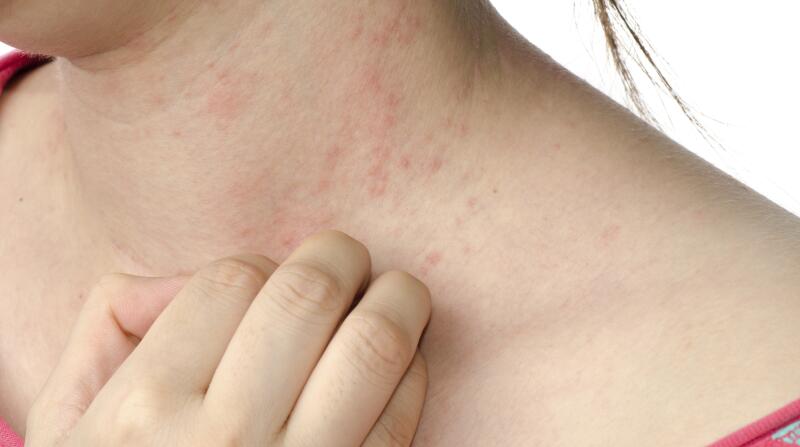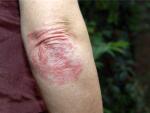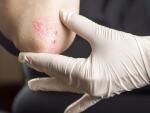5 Common Misconceptions About Psoriasis

Medically Reviewed By William C. Lloyd III, MD, FACS
Written By Jennifer Braico on November 9, 2020
-
 Biases About PsoriasisPsoriasis, a chronic skin disease that affects 7.5 million people in the United States, often is much more visible than other diseases, prompting questions from people who sometimes form their own—often incorrect—opinions about it. Think about it: Have you ever hesitated to shake hands with someone who has scaly, red patches of skin showing, perhaps thinking, “Is that contagious?” Here’s what to know about the six most common myths surrounding psoriasis.
Biases About PsoriasisPsoriasis, a chronic skin disease that affects 7.5 million people in the United States, often is much more visible than other diseases, prompting questions from people who sometimes form their own—often incorrect—opinions about it. Think about it: Have you ever hesitated to shake hands with someone who has scaly, red patches of skin showing, perhaps thinking, “Is that contagious?” Here’s what to know about the six most common myths surrounding psoriasis. -
 Misconception #1: Psoriasis is contagious.While scientists don’t know exactly what causes psoriasis, they’ve definitively determined it’s not contagious. Current medical opinion is that psoriasis is partially caused by a person’s genetic makeup and immune system, so sometimes it runs in families. Men are just as likely as women to be diagnosed with psoriasis, and it occurs in all ethnic groups, but at a lower rate in African Americans (1.9%) than in Caucasians (3.6%).
Misconception #1: Psoriasis is contagious.While scientists don’t know exactly what causes psoriasis, they’ve definitively determined it’s not contagious. Current medical opinion is that psoriasis is partially caused by a person’s genetic makeup and immune system, so sometimes it runs in families. Men are just as likely as women to be diagnosed with psoriasis, and it occurs in all ethnic groups, but at a lower rate in African Americans (1.9%) than in Caucasians (3.6%). -
-
 Misconception #2: Not showering often enough causes psoriasis.No. Hygiene habits, or lack of them, are not a root cause of psoriasis, and neither are food intolerances or allergies. Stress might trigger a psoriasis flare-up, but isn’t an underlying cause of the disease. (A psoriasis flare also might cause stress, so it’s often difficult to determine which comes first.) Getting a cold or strep throat, which causes the immune system to respond and overreact, can also cause a psoriasis flare-up, as can some medicines and sometimes even cold weather. Some people may find certain foods can trigger a flare-up, as well.
Misconception #2: Not showering often enough causes psoriasis.No. Hygiene habits, or lack of them, are not a root cause of psoriasis, and neither are food intolerances or allergies. Stress might trigger a psoriasis flare-up, but isn’t an underlying cause of the disease. (A psoriasis flare also might cause stress, so it’s often difficult to determine which comes first.) Getting a cold or strep throat, which causes the immune system to respond and overreact, can also cause a psoriasis flare-up, as can some medicines and sometimes even cold weather. Some people may find certain foods can trigger a flare-up, as well. -
 Misconception #3: There’s no treatment for psoriasis.Just because there’s no cure for psoriasis doesn’t mean it can’t be treated. Many find relief from topical ointments, including those containing salicylic acid, which helps remove skin scales. Salicylic acid can cause some side effects, such as hair loss and skin irritation, however, so it’s best used in smaller areas. Doctors also prescribe steroid lotions, which can help reduce inflammation, but also can cause skin to become thinner; regular sunlight is also an effective treatment for psoriasis. For scalp plaque psoriasis, doctors often recommend coal tar shampoo. Biologics, a class of medications, can help “quiet” the immune system, too.
Misconception #3: There’s no treatment for psoriasis.Just because there’s no cure for psoriasis doesn’t mean it can’t be treated. Many find relief from topical ointments, including those containing salicylic acid, which helps remove skin scales. Salicylic acid can cause some side effects, such as hair loss and skin irritation, however, so it’s best used in smaller areas. Doctors also prescribe steroid lotions, which can help reduce inflammation, but also can cause skin to become thinner; regular sunlight is also an effective treatment for psoriasis. For scalp plaque psoriasis, doctors often recommend coal tar shampoo. Biologics, a class of medications, can help “quiet” the immune system, too. -
 Misconception #4: It’s just a rash, right?Up to 60% of people living with psoriasis say it causes significant problems with everyday life. Don’t confuse psoriasis with eczema or other common skin rashes. Psoriasis can be serious; being diagnosed with it means an increased risk for developing certain other diseases such as type 2 diabetes, lymphoma, skin cancer, cardiovascular disease (including stroke), and inflammatory bowel disease. Depression is also twice as common among people with psoriasis, but studies show adequately treating the disease often helps alleviate the symptoms of depression.
Misconception #4: It’s just a rash, right?Up to 60% of people living with psoriasis say it causes significant problems with everyday life. Don’t confuse psoriasis with eczema or other common skin rashes. Psoriasis can be serious; being diagnosed with it means an increased risk for developing certain other diseases such as type 2 diabetes, lymphoma, skin cancer, cardiovascular disease (including stroke), and inflammatory bowel disease. Depression is also twice as common among people with psoriasis, but studies show adequately treating the disease often helps alleviate the symptoms of depression. -
 Misconception #5: Psoriasis always gets better with age.While there’s no cure for psoriasis, some people do experience periods of remission throughout their lives, whether due to medical or holistic treatments or a combination of both. Some people swear by a certain diet to achieve a drug-free remission and others struggle manage sustained relief. The disease, like any other, takes different paths for everyone.
Misconception #5: Psoriasis always gets better with age.While there’s no cure for psoriasis, some people do experience periods of remission throughout their lives, whether due to medical or holistic treatments or a combination of both. Some people swear by a certain diet to achieve a drug-free remission and others struggle manage sustained relief. The disease, like any other, takes different paths for everyone. -
5 Common Misconceptions About Psoriasis


































